This blog is authored by Mariela Jiménez Rivero, Ph.D. student in nutritional sciences at The University of Texas at Austin and member of the featured team.
Researchers at The University of Texas at Austin, the Benemérita Universidad Autónoma de Puebla and community partners from the Fondo Comunitario Mónica Gendreau-Fundación Comunitaria de Puebla kicked off a school gardening and hydroponics research study in a middle school in a rural community near Puebla, Mexico.
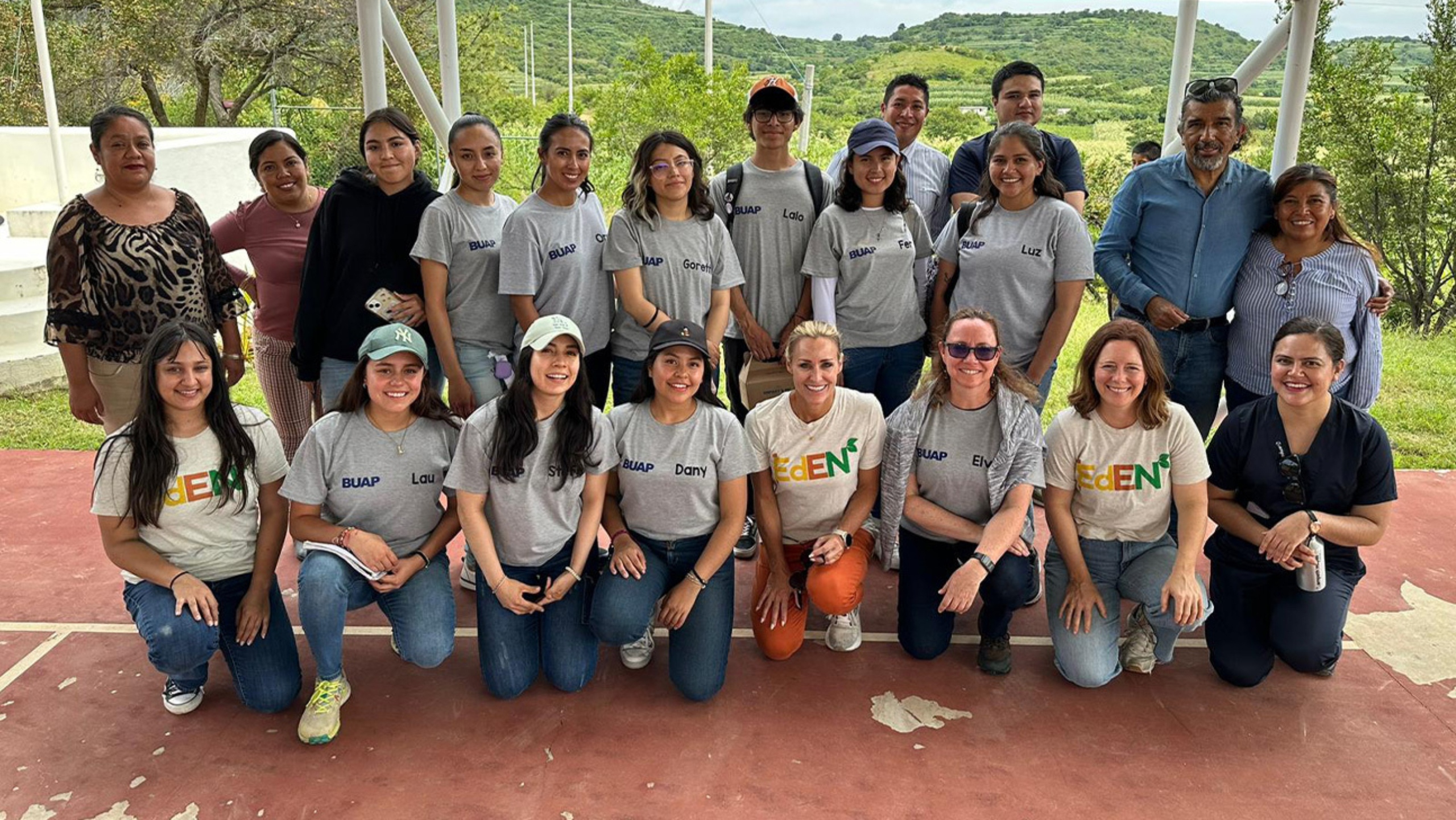
Members from the Fondo Comunitario Mónica Gendreau-Fundación Comunitaria de Puebla (FCMG-FCP), the Benemérita Universidad Autónoma de Puebla (BUAP), The University of Texas at Austin and teachers at a middle school in Puebla pose for a group photo after performing research activities for school gardening program.
The study is part of an AMPATH/MAPAS México innovation seed grant that consists of evaluating the implementation, acceptability and feasibility of a school gardening and hydroponics program. The UT research team from the EdEN Lab developed an evidence-based nutrition, gardening and cooking curriculum that will be translated, adapted, and taught by Benemérita Universidad Autónoma de Puebla nutrition students to the middle school students during monthly visits in the 2024-2025 school year.
Fondo Comunitario Mónica Gendreau-Fundación Comunitaria de Puebla coordinated the initial school garden build in the community on Monday, Sept. 23, where the middle school hosted 12 BUAP and 6 UT members for a day full of nutrition lessons, gardening, painting and lots of fun!
Arrival
Early on Sept. 23, the UT and Benemérita Universidad Autónoma de Puebla team arrived at the rural community for an introductory meeting with the parents and teachers to discuss the plan for the day and receive a tour of the garden beds and rainwater collection units already installed by the parents in preparation of their visit. Immediately in the central courtyard, the visitors witnessed the students’ and teachers’ weekly civic ceremony.

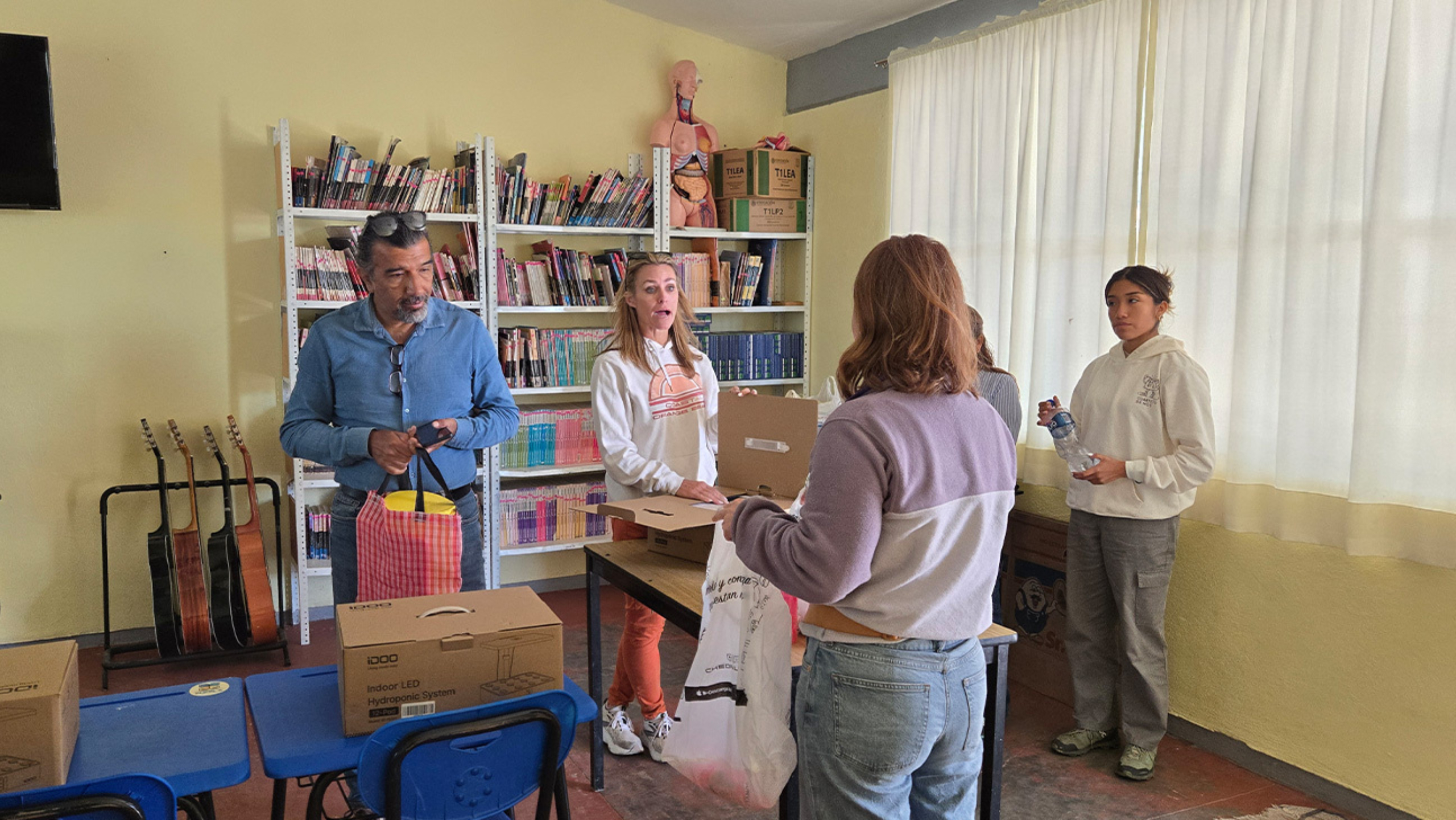
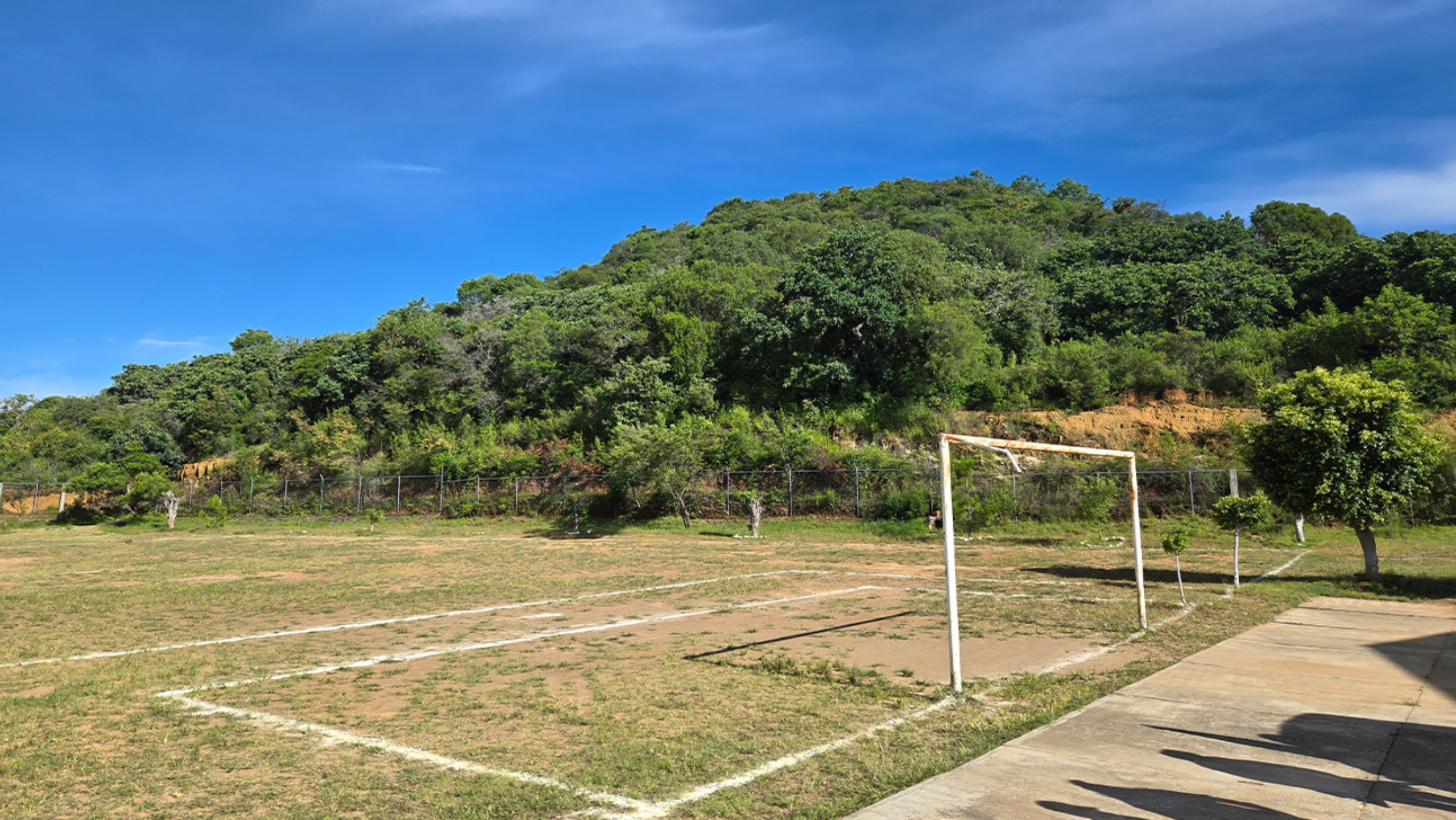
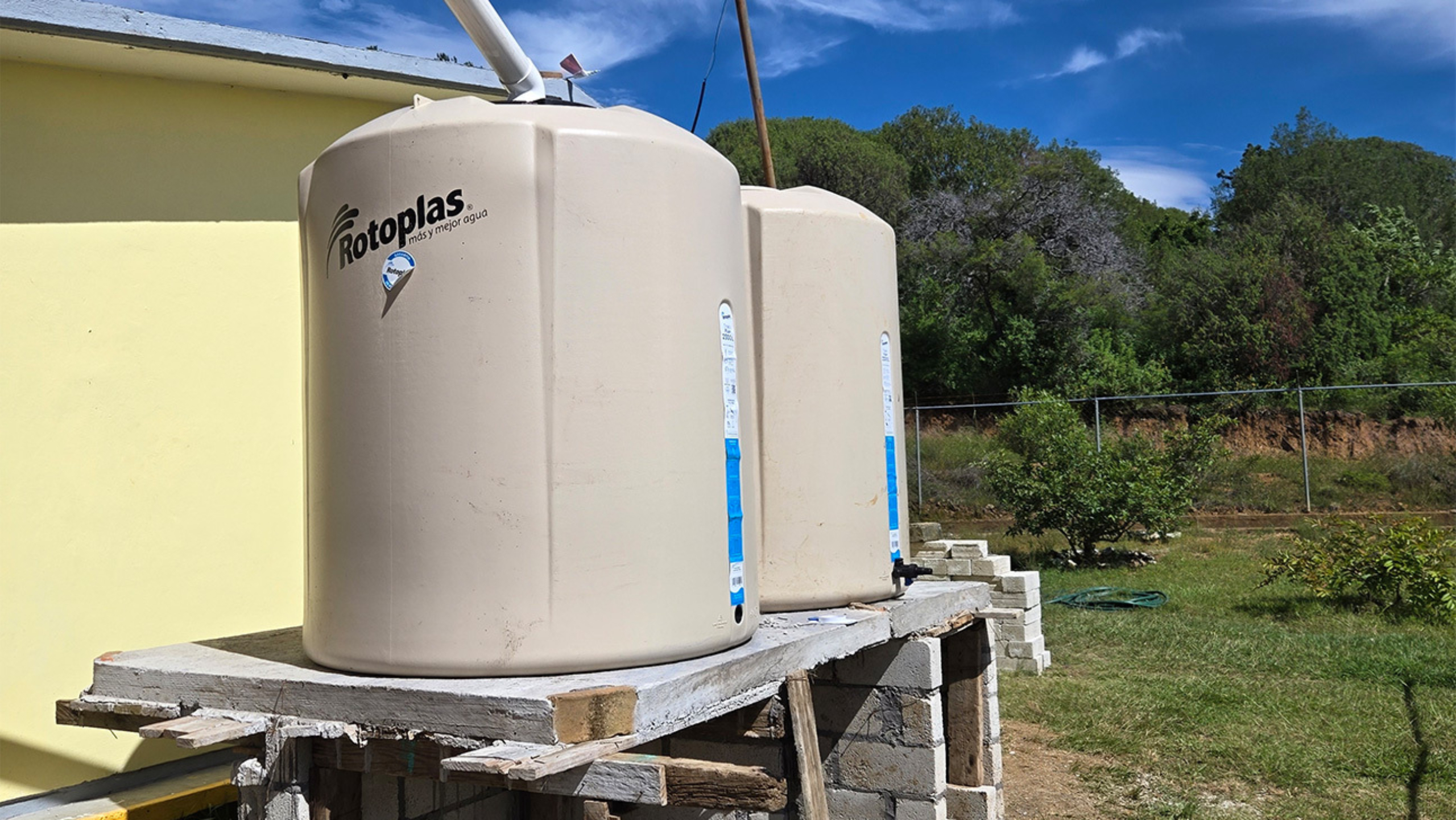
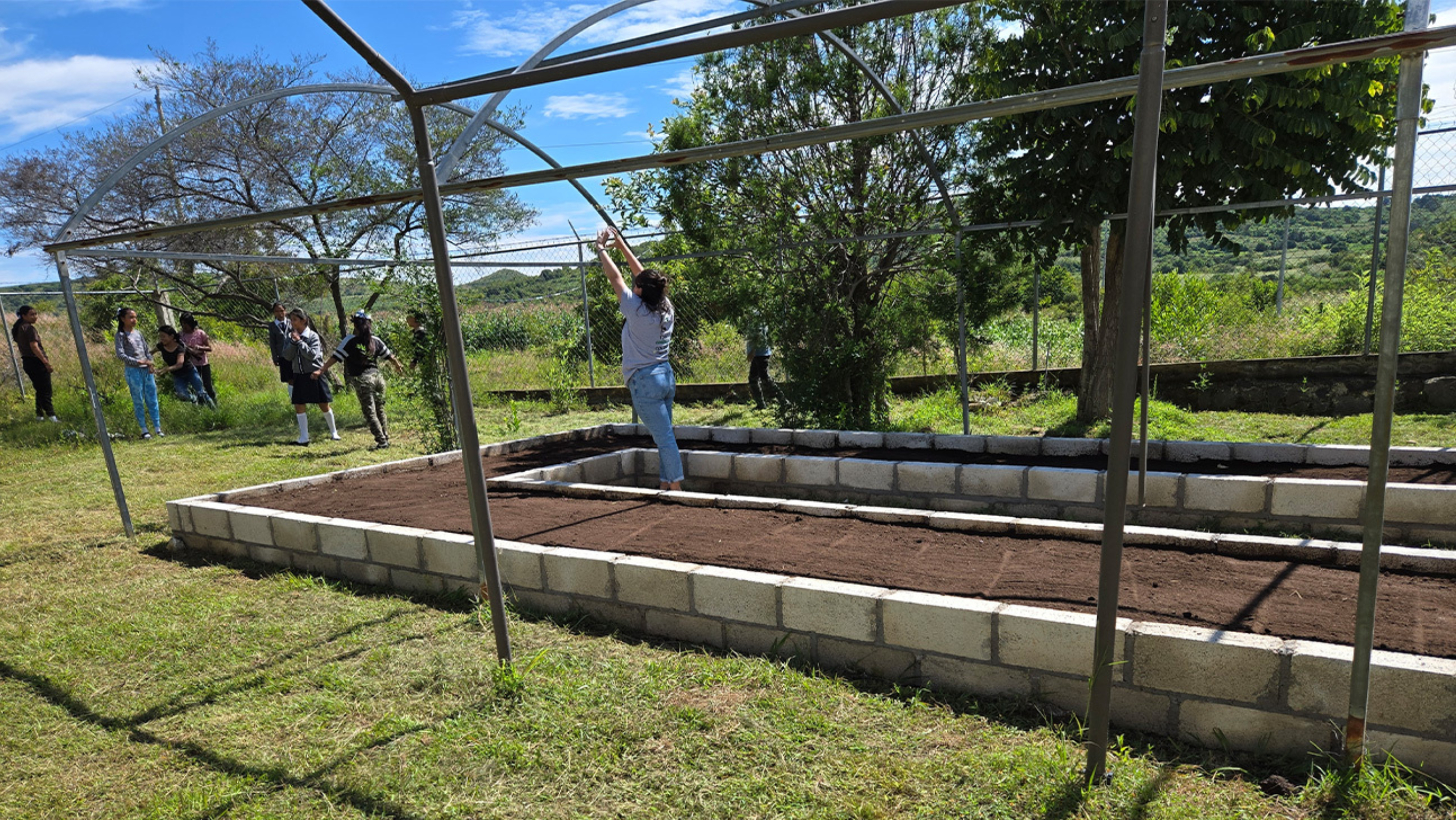
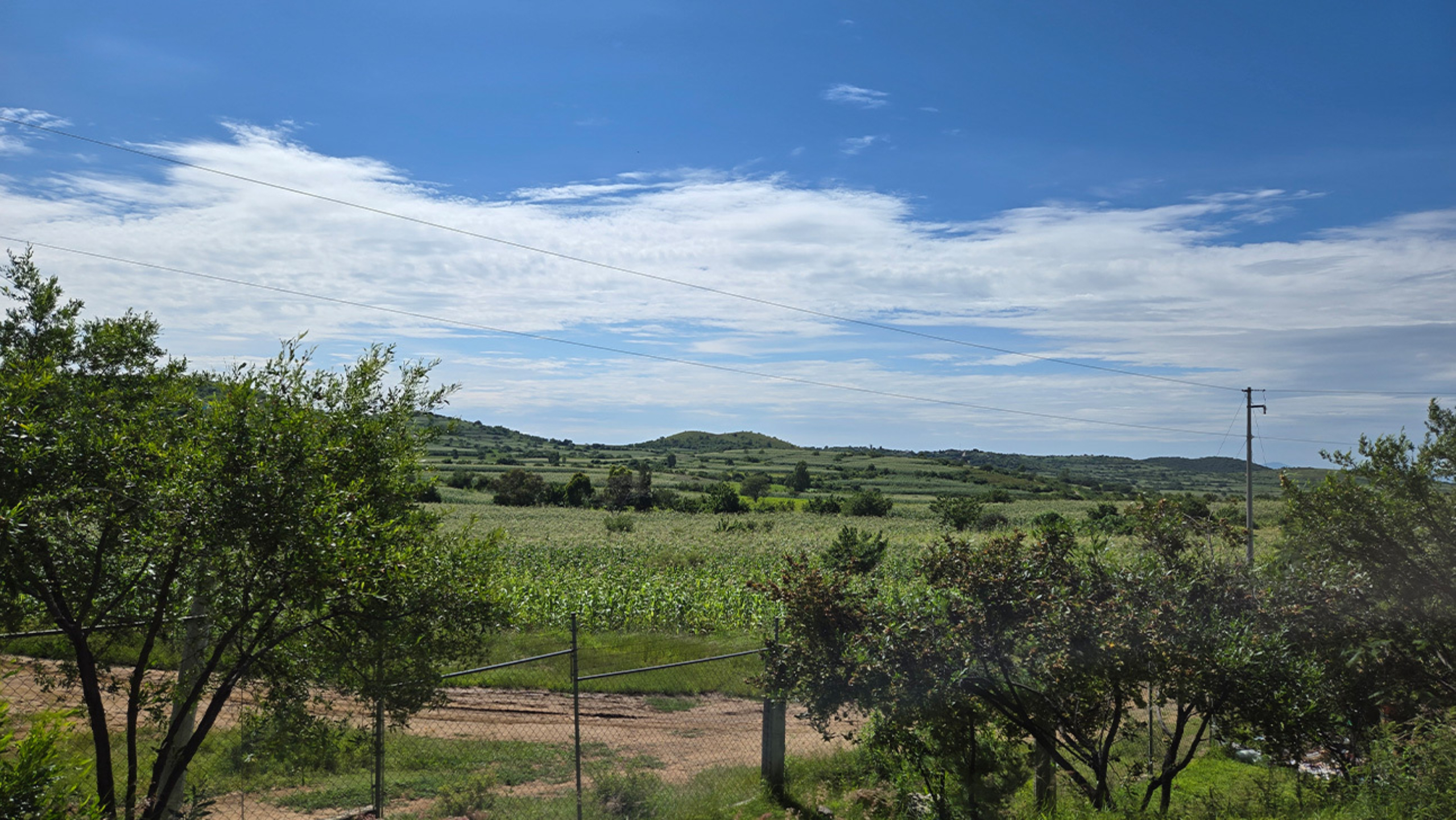
Nutrition Education Lessons
The middle school students were divided into two groups — first-year students and second- and third-year students along with their teachers — to facilitate the impartation of the hydroponics, recipe and gardening lessons
Hydroponics & Recipes
The UT team installed hydroponic units and led a lesson that discussed the benefits of hydroponics, such as a reduction in water usage and indoor advantages. The EdEN Lab members taught the students how to use the hydroponic units by showing them how to plant the seeds, fill up the units with water and adjust the lights according to plant growth. Student volunteers practiced planting seeds and enjoyed learning about the different germinating and sprouting times of their cilantro, lettuce, spinach and chards.
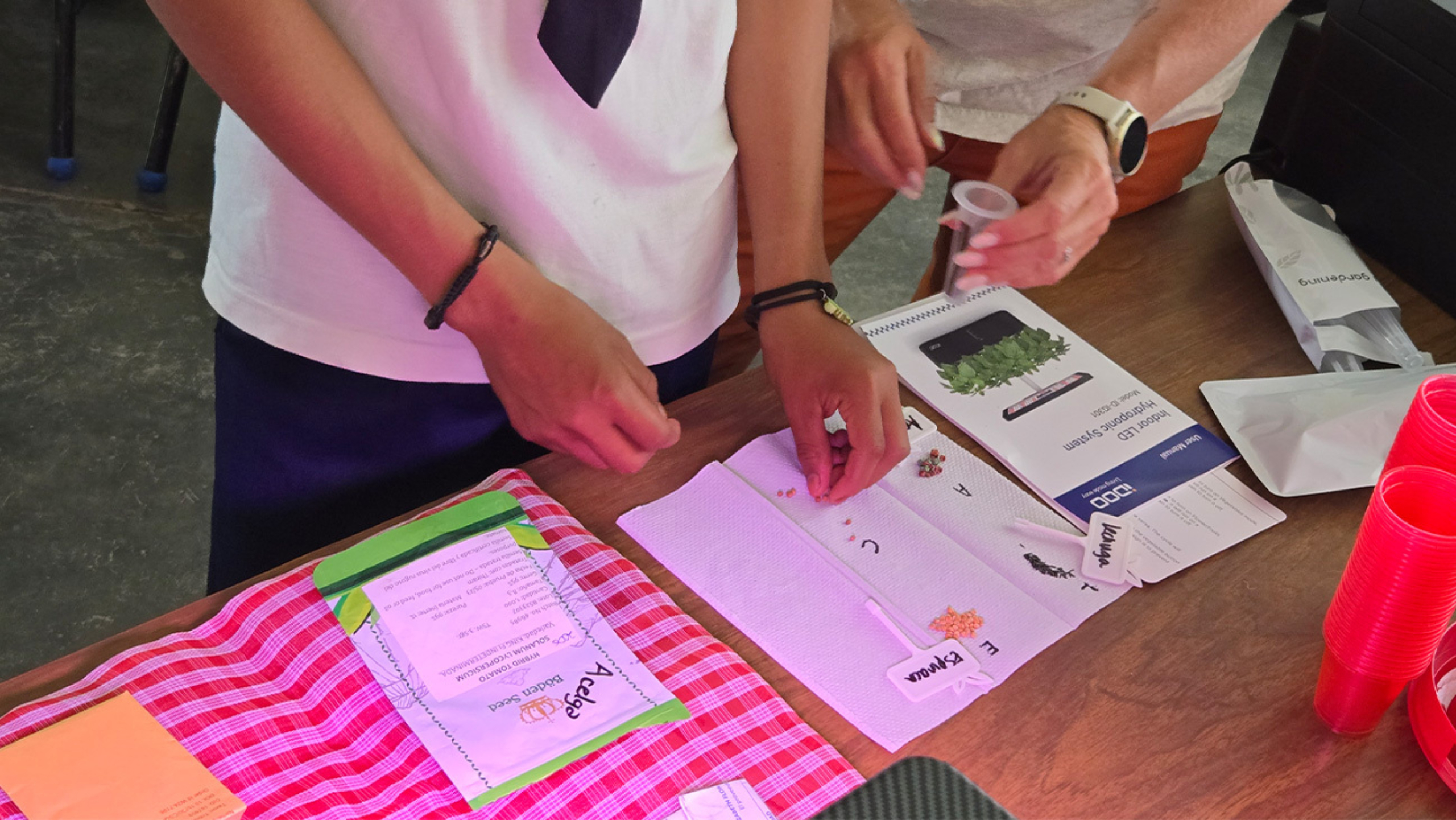
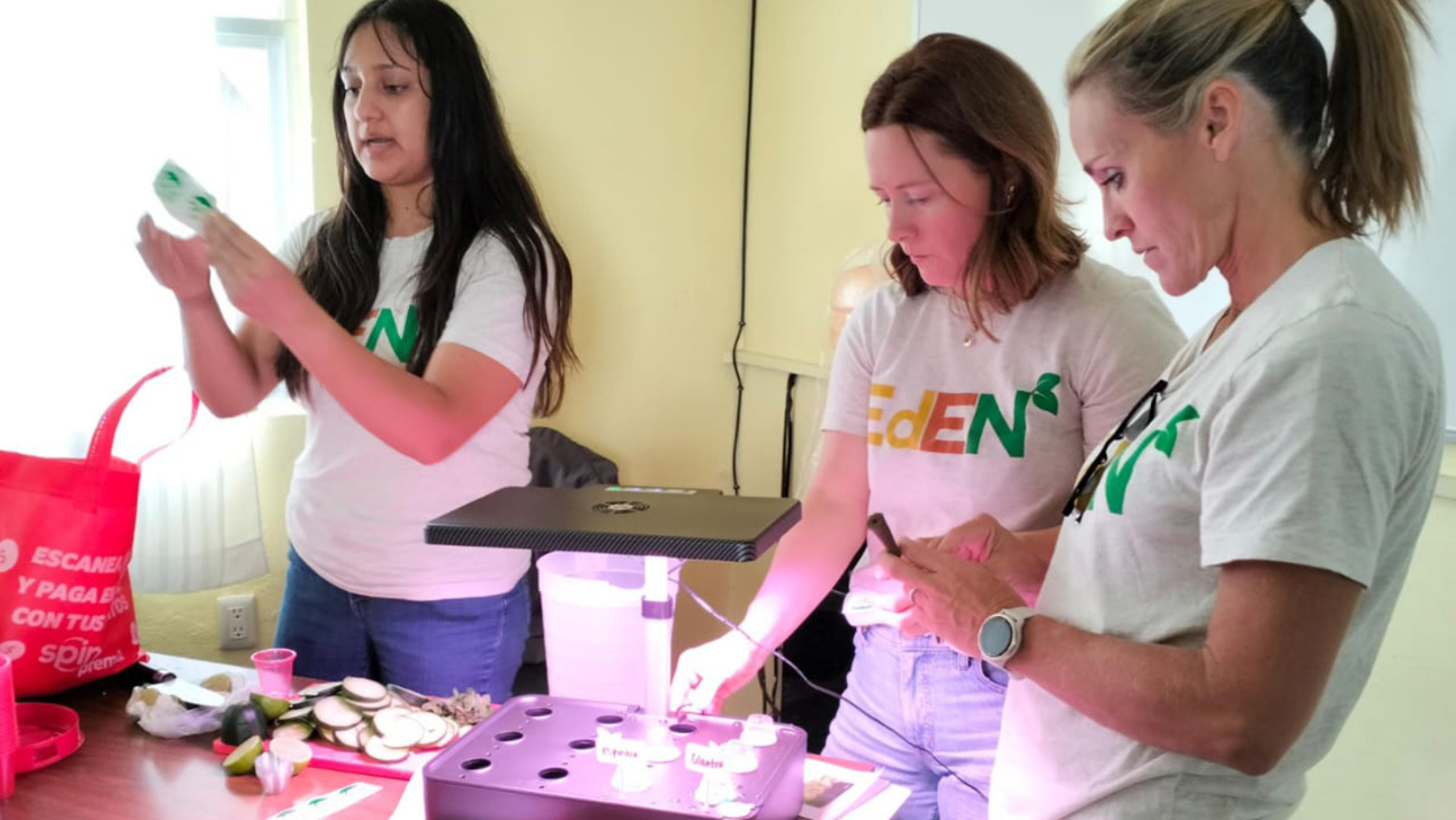
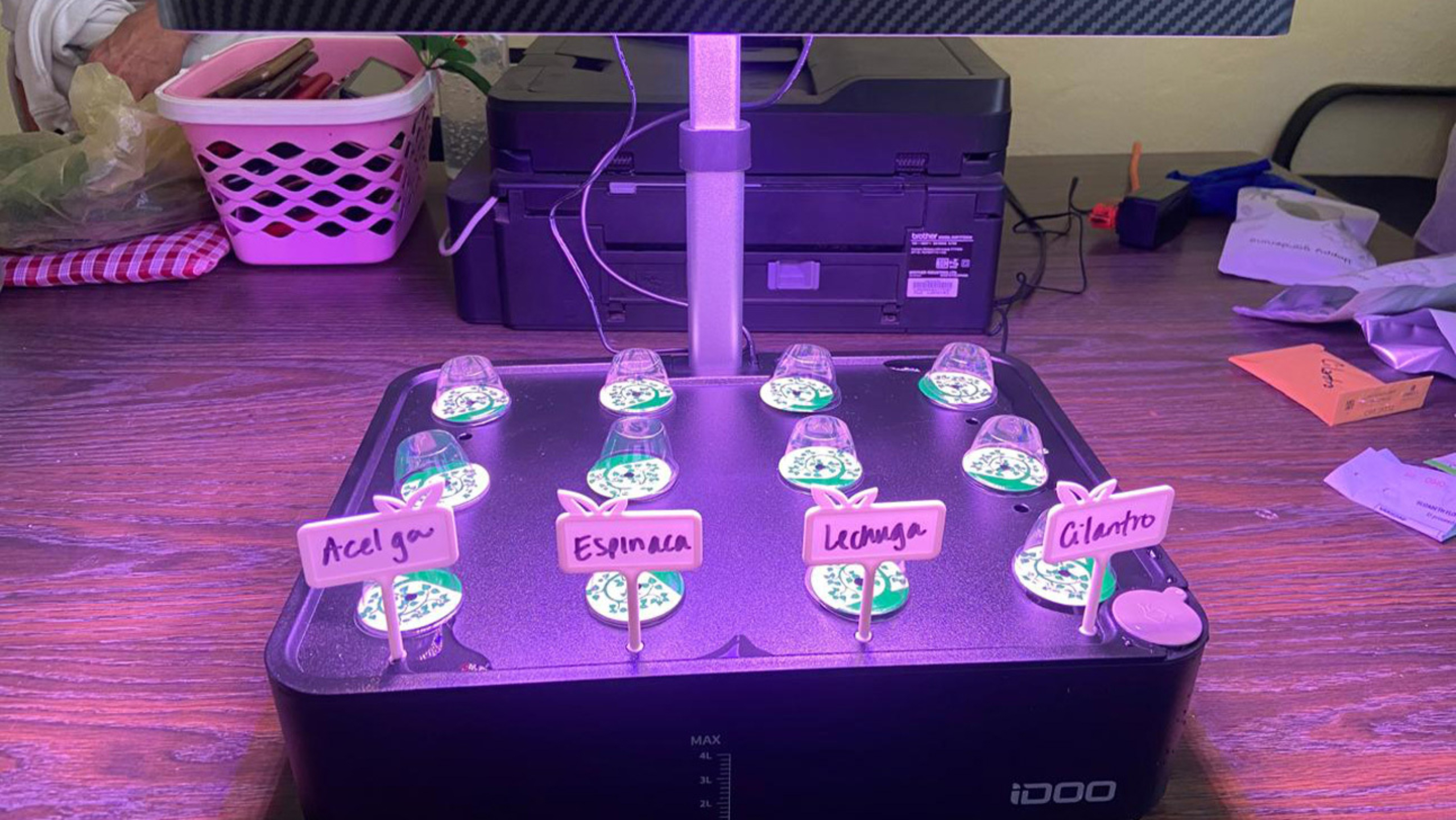
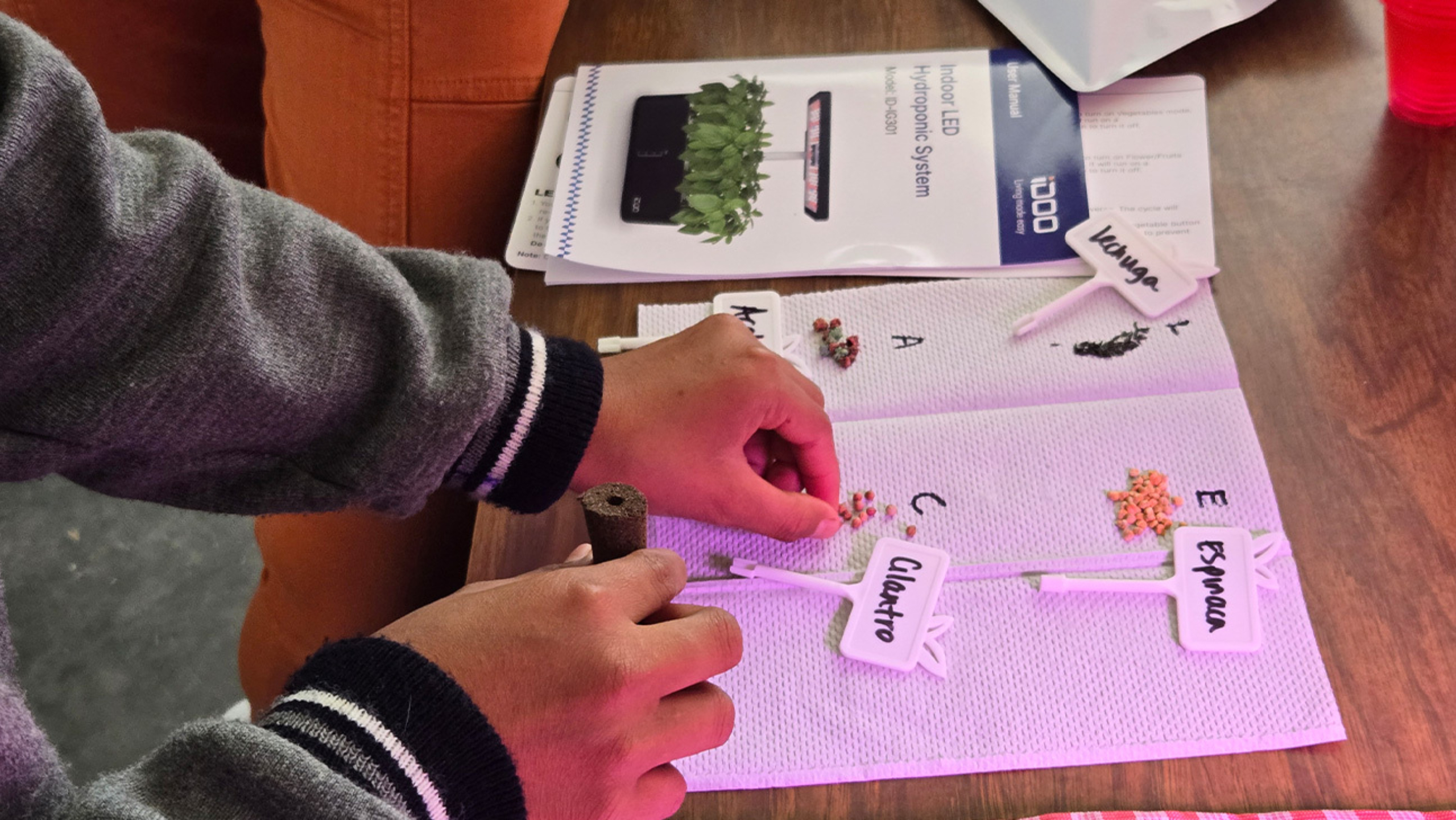
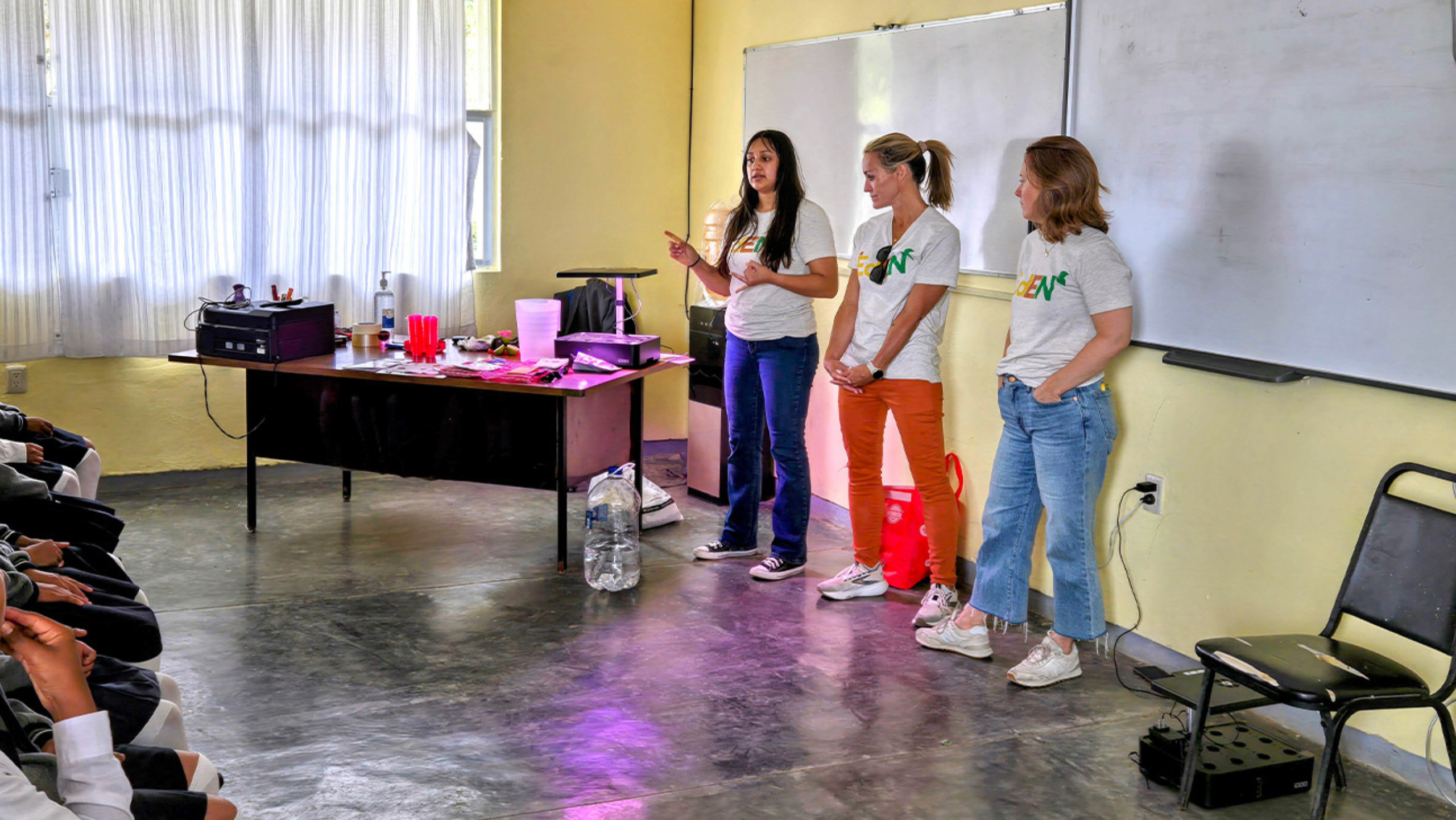
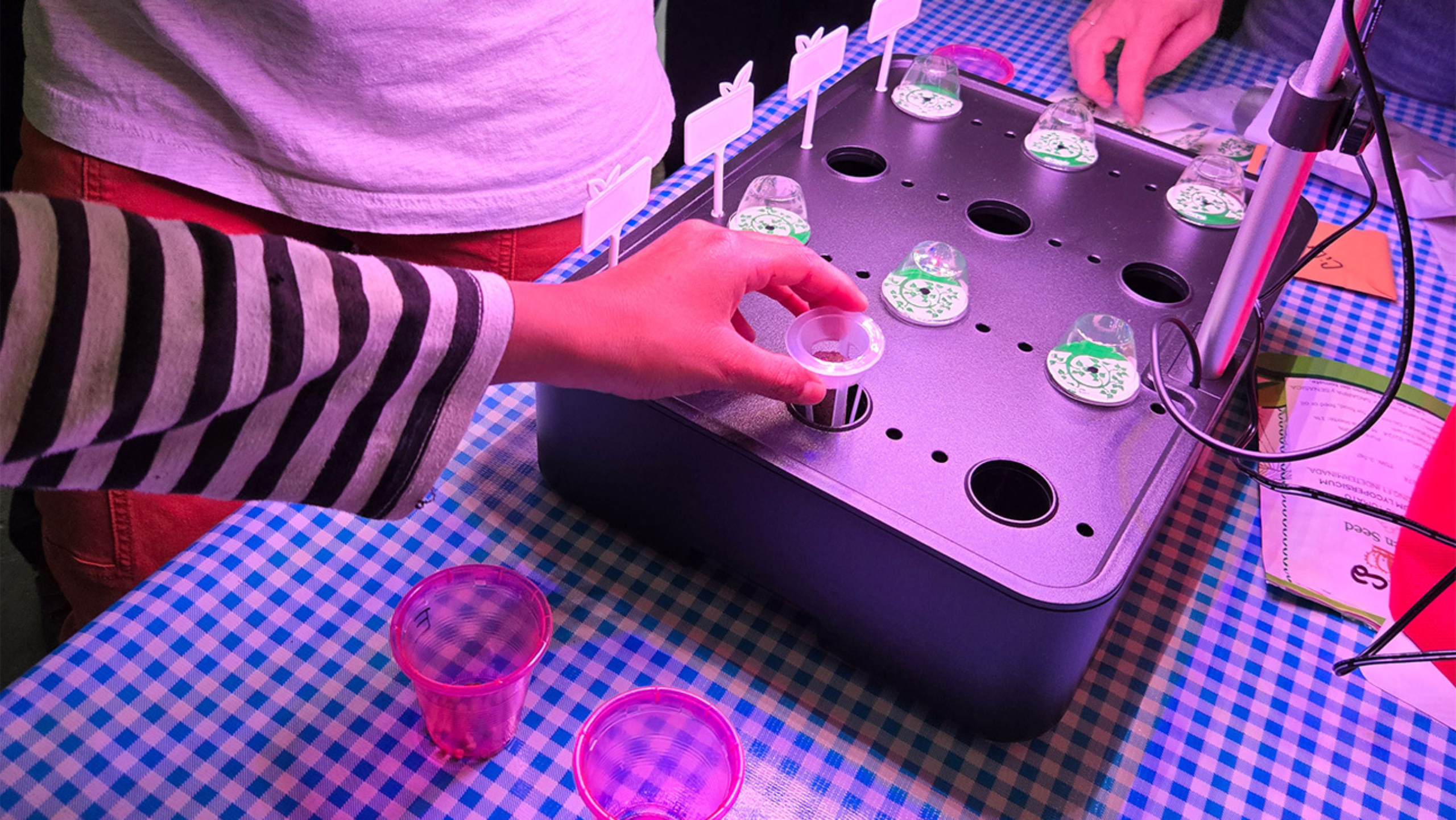
As an alternative to sugar sweetened beverages, the team introduced a recipe for aguas frescas that incorporated fresh fruit and herbs that could be harvested from their school garden in the future. The students then learned how to and prepared a fresh and delicious cucumber, peppermint and lime agua fresca. Student volunteers helped chop the ingredients and place it in a pitcher that brewed while they continued with their next activities.
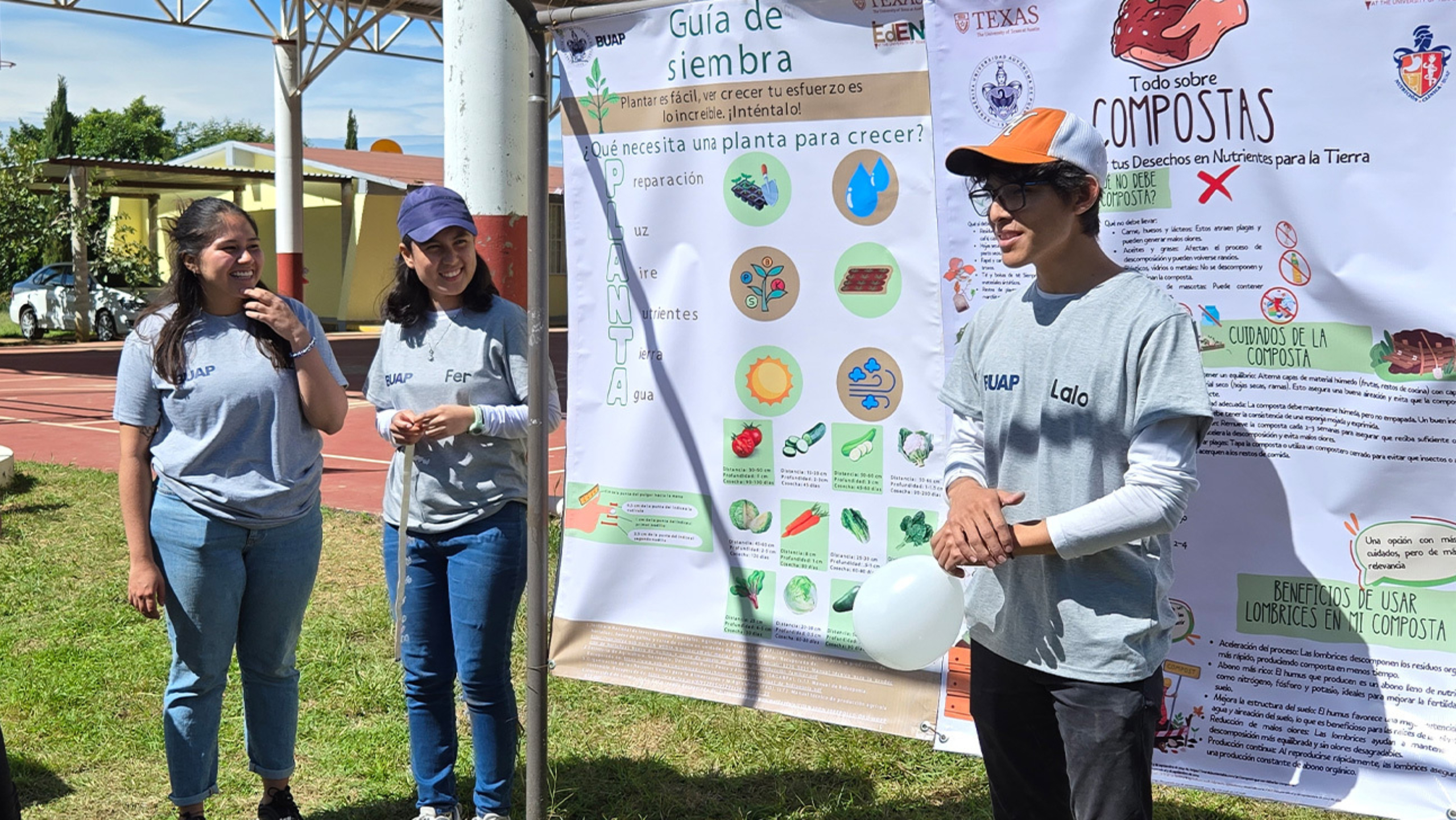
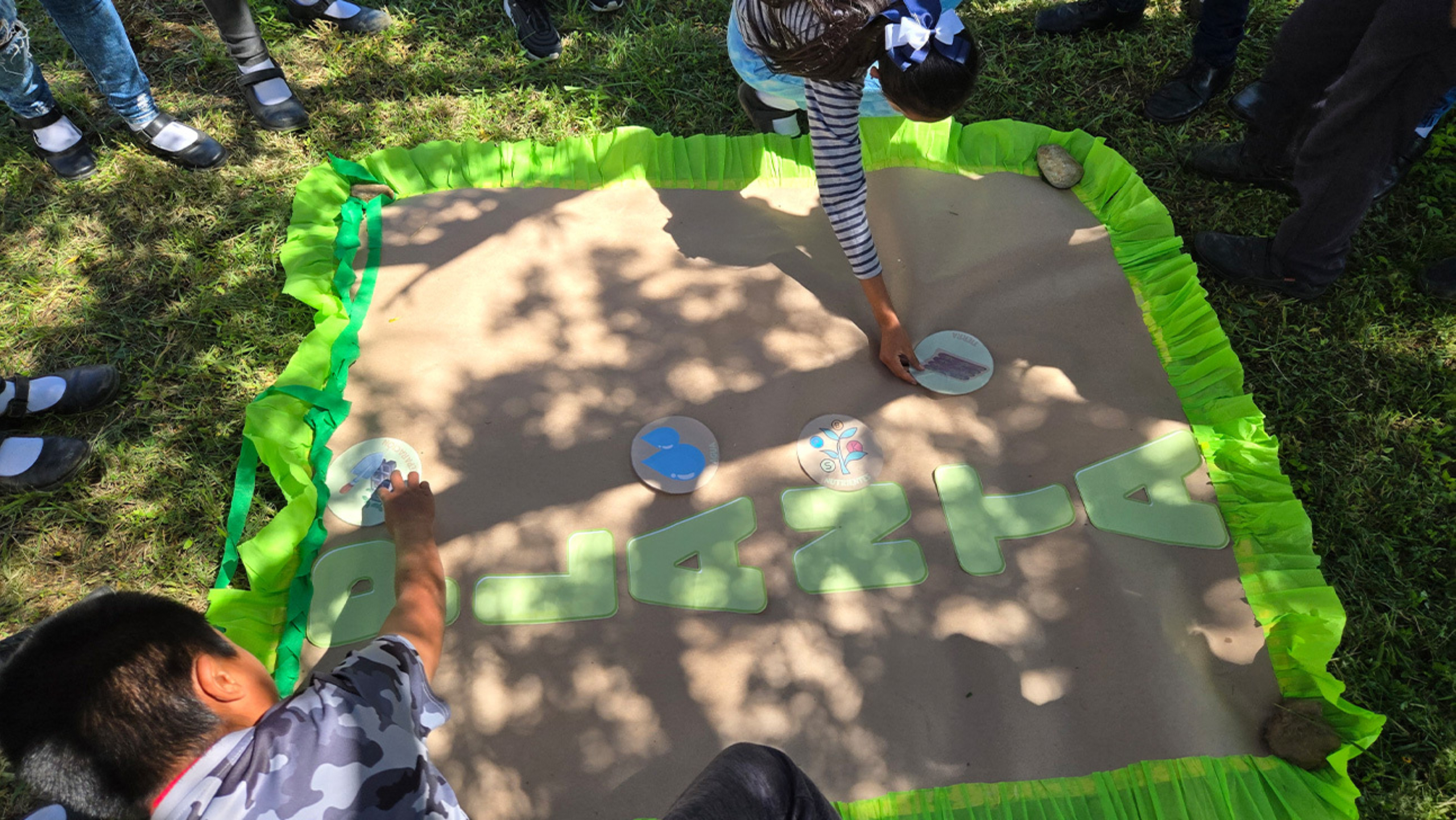
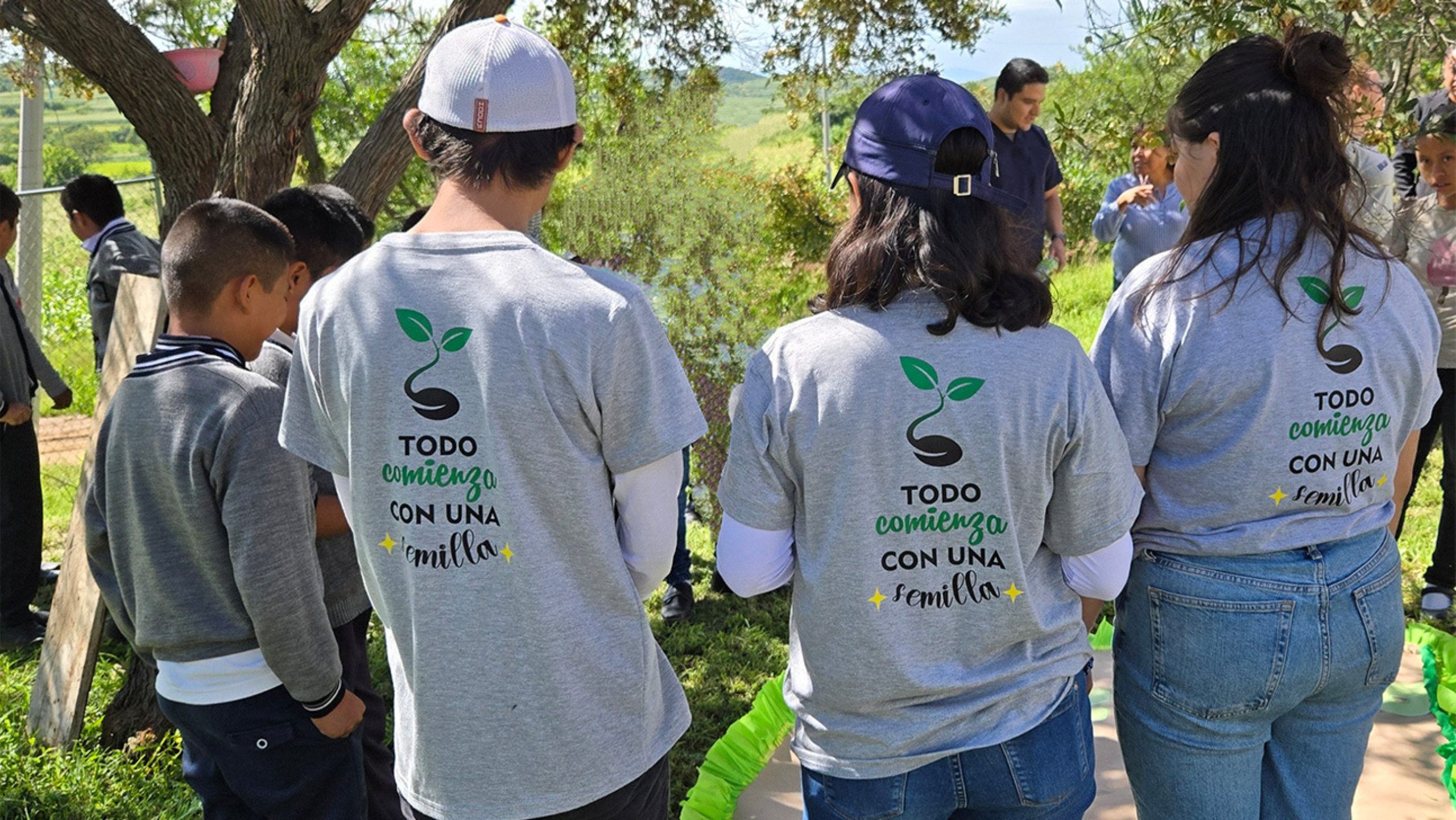
The second lesson of the day, taught by Benemérita Universidad Autónoma de Puebla nutrition students, was about planting. First, the middle school students participated in a scavenger hunt to find printouts of the essential components for plant growth: preparation, light, air, nutrition and water. The BUAP students then taught more in-depth about why all these components are important, discussing photosynthesis, seed spacing and nutrition requirements of plants. Once the lesson was complete, they were ready to begin planting.
Gardening
Alejandro Luna Lopez from Fondo Comunitario Mónica Gendreau-Fundación Comunitaria de Puebla led the gardening activity in the prebuilt garden beds. He taught students the best methods to ensure successful growth of their broccoli, lettuce, cucumber, peppers, tomato and other vegetables. The students planted seeds and seedlings and learned about proper care and gardening techniques necessary for the upcoming school year.
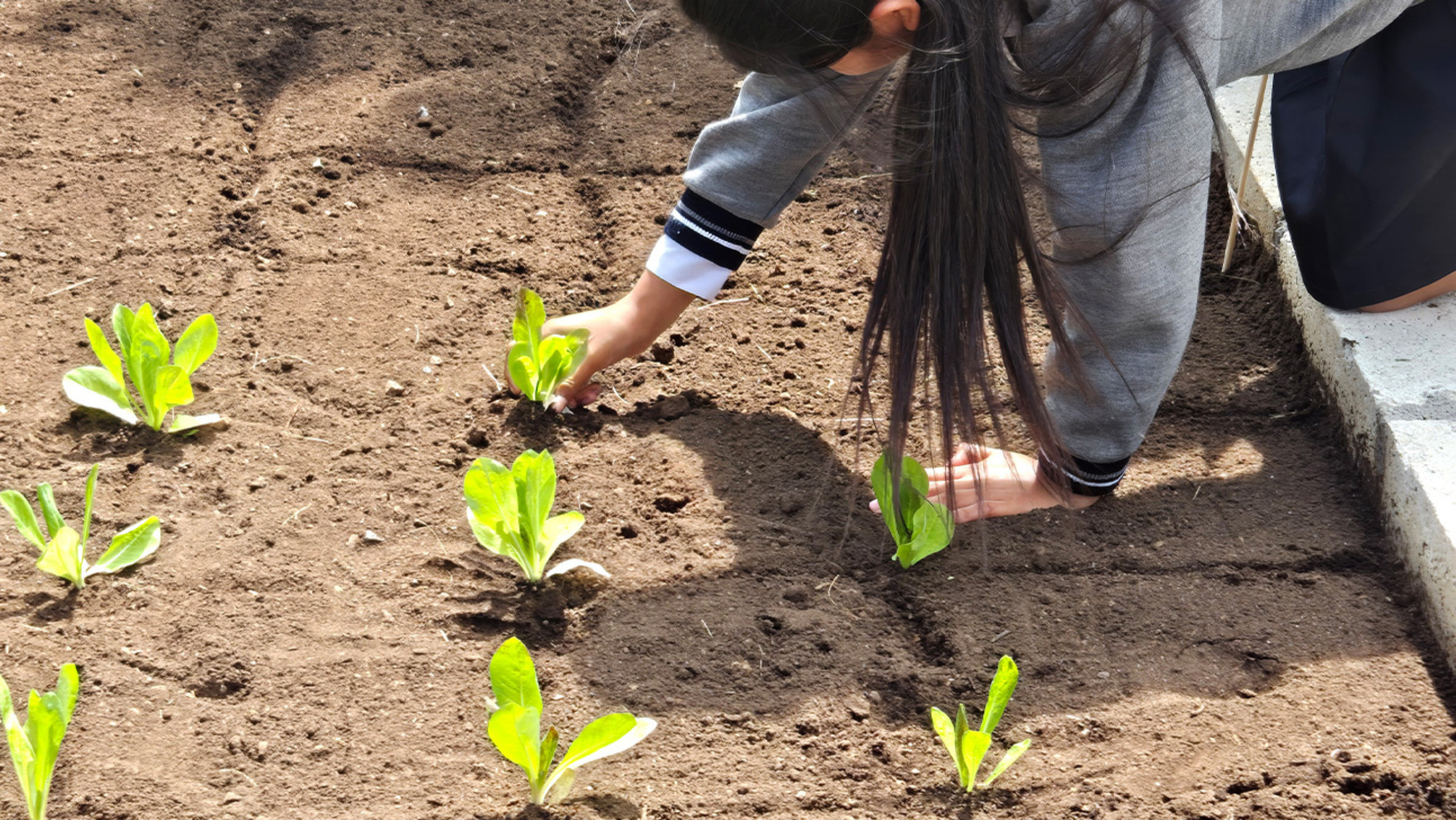
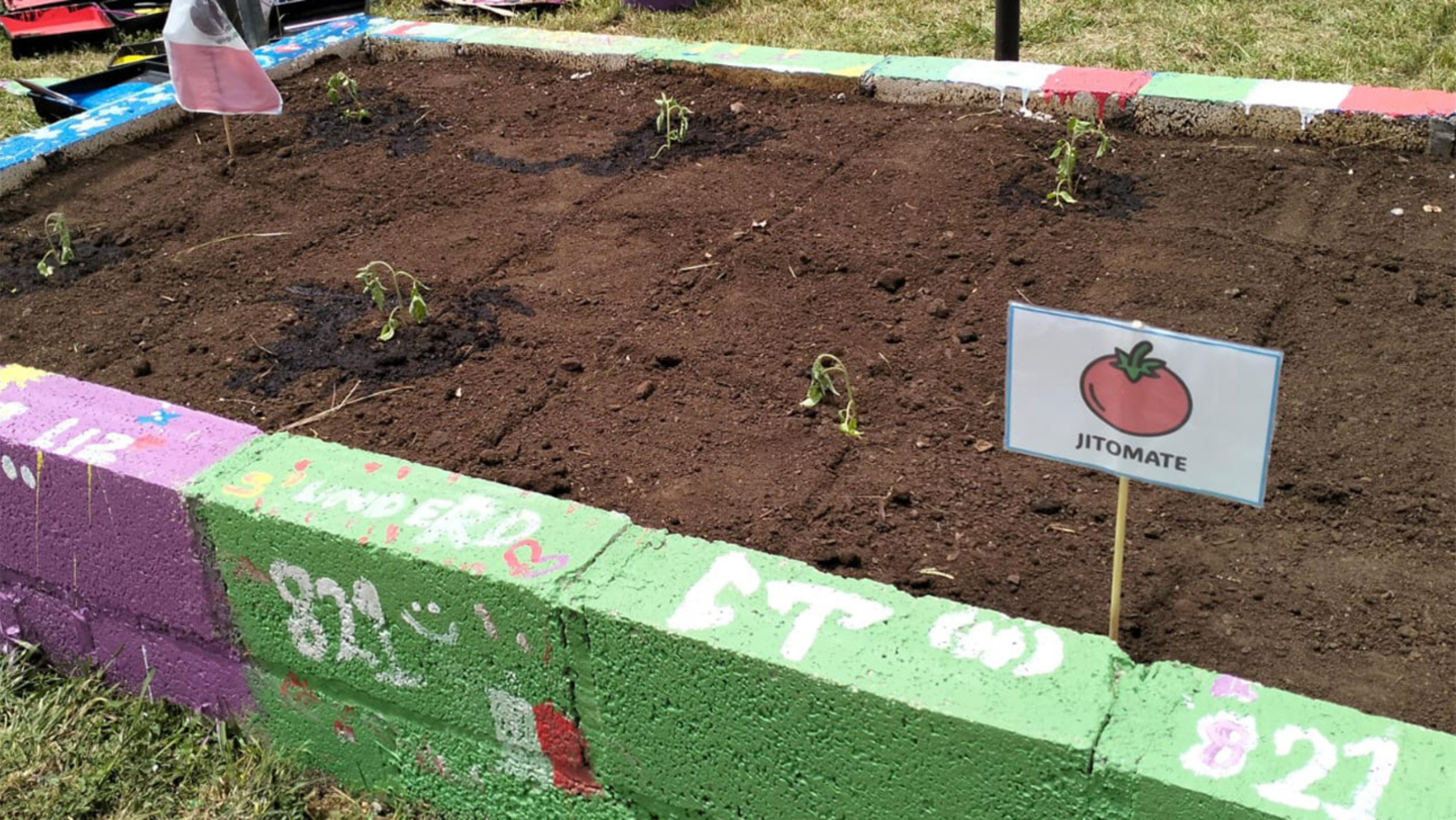
Painting
Finally, the students, university collaborators and community members painted the garden cinderblocks. They creatively decorated the garden and de-stressed with every brush stroke. Students quickly started personalizing the garden space and included drawings of landscapes, the Mexican flag and a colorful collage. Other decorations included the UT, Benemérita Universidad Autónoma de Puebla and EdEN logos and cute baby feet prints.
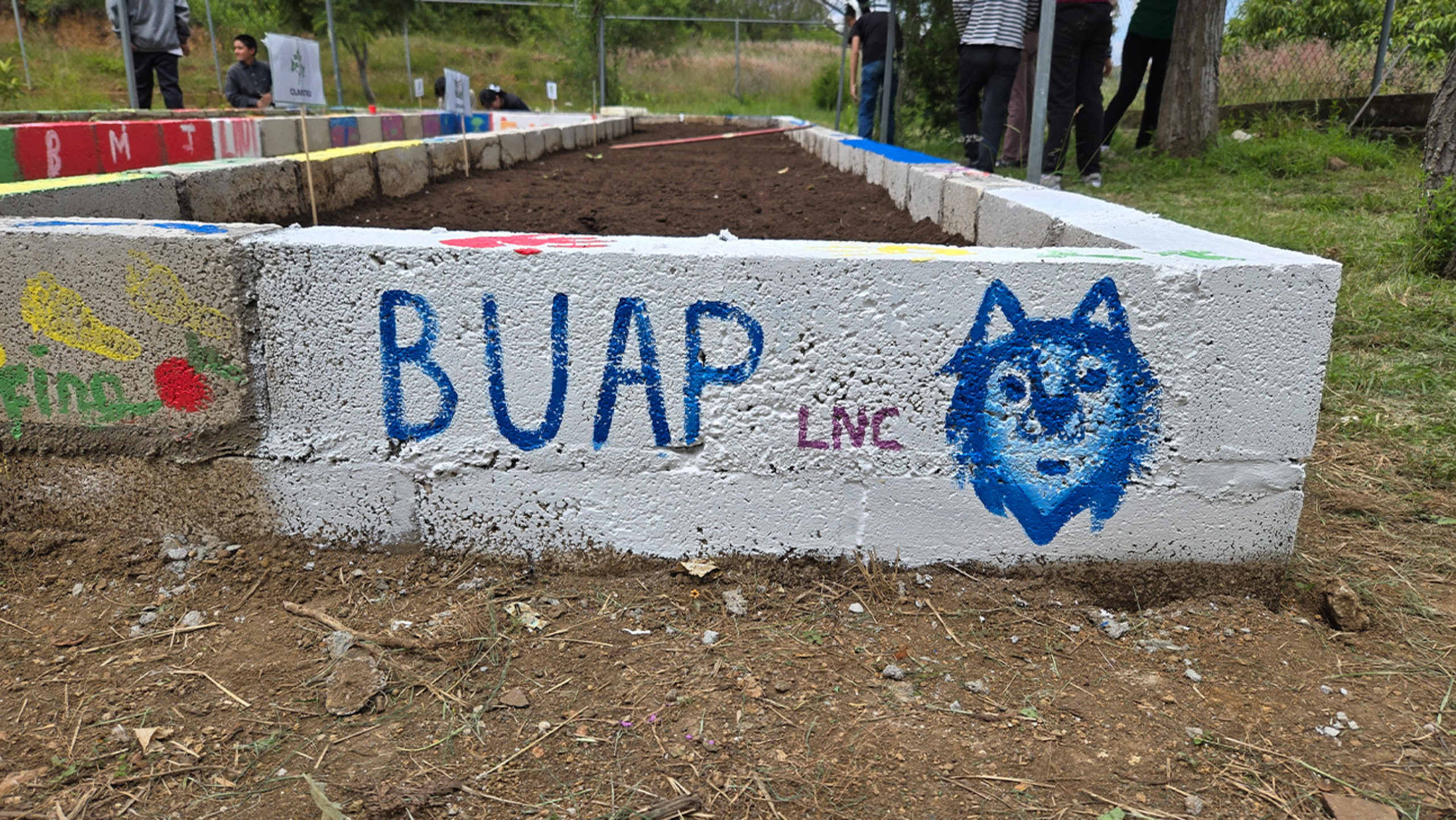
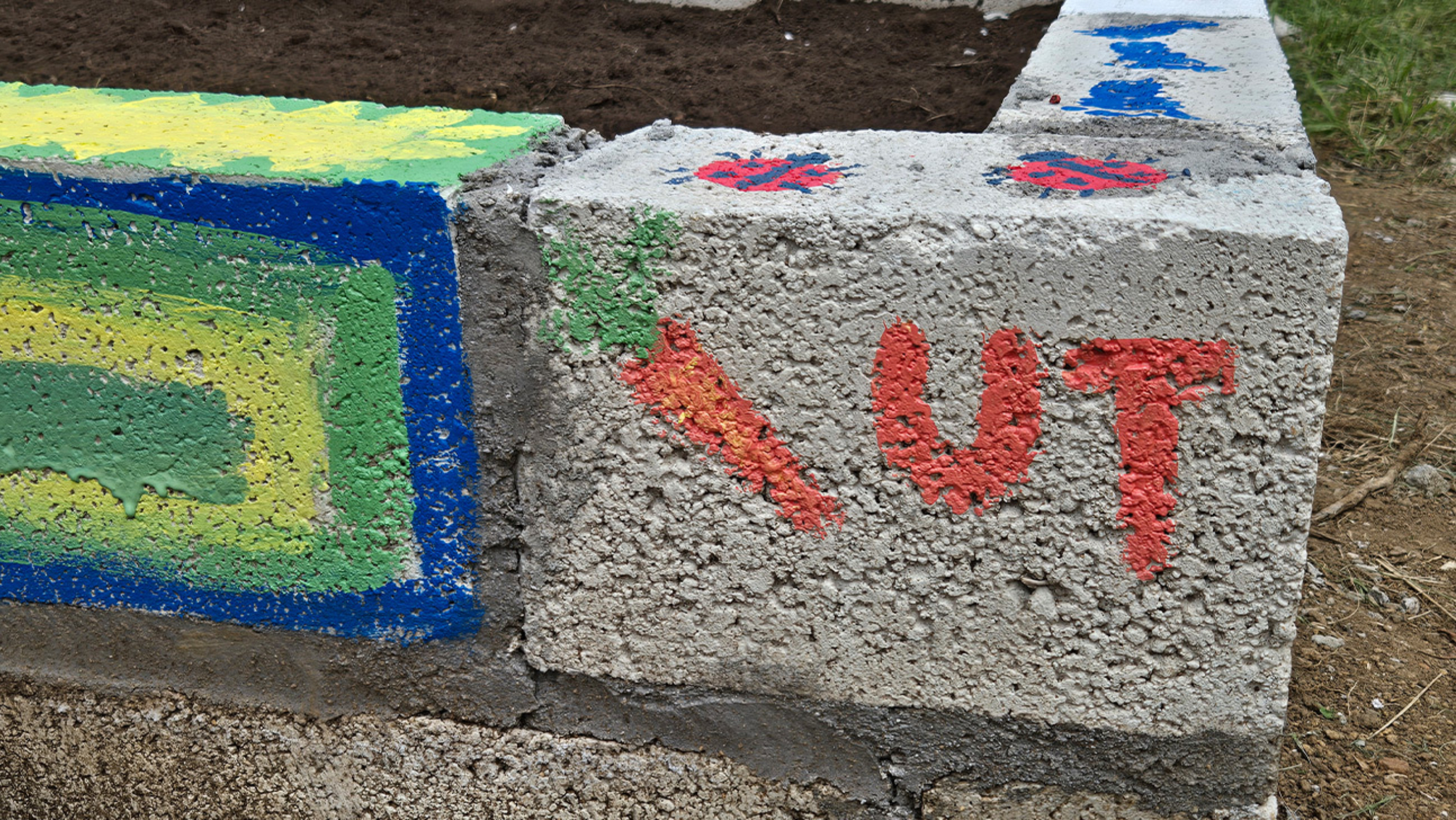
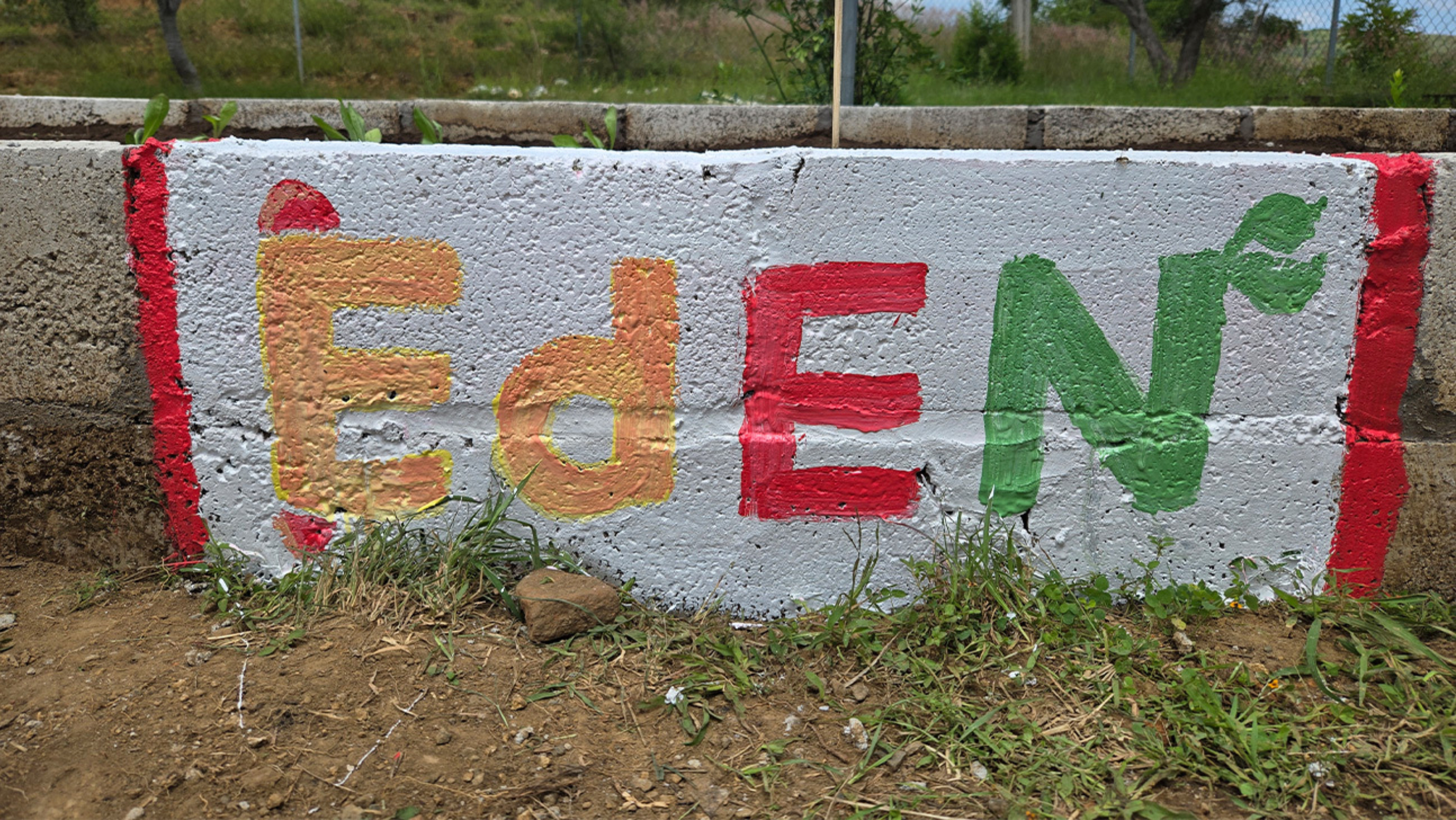
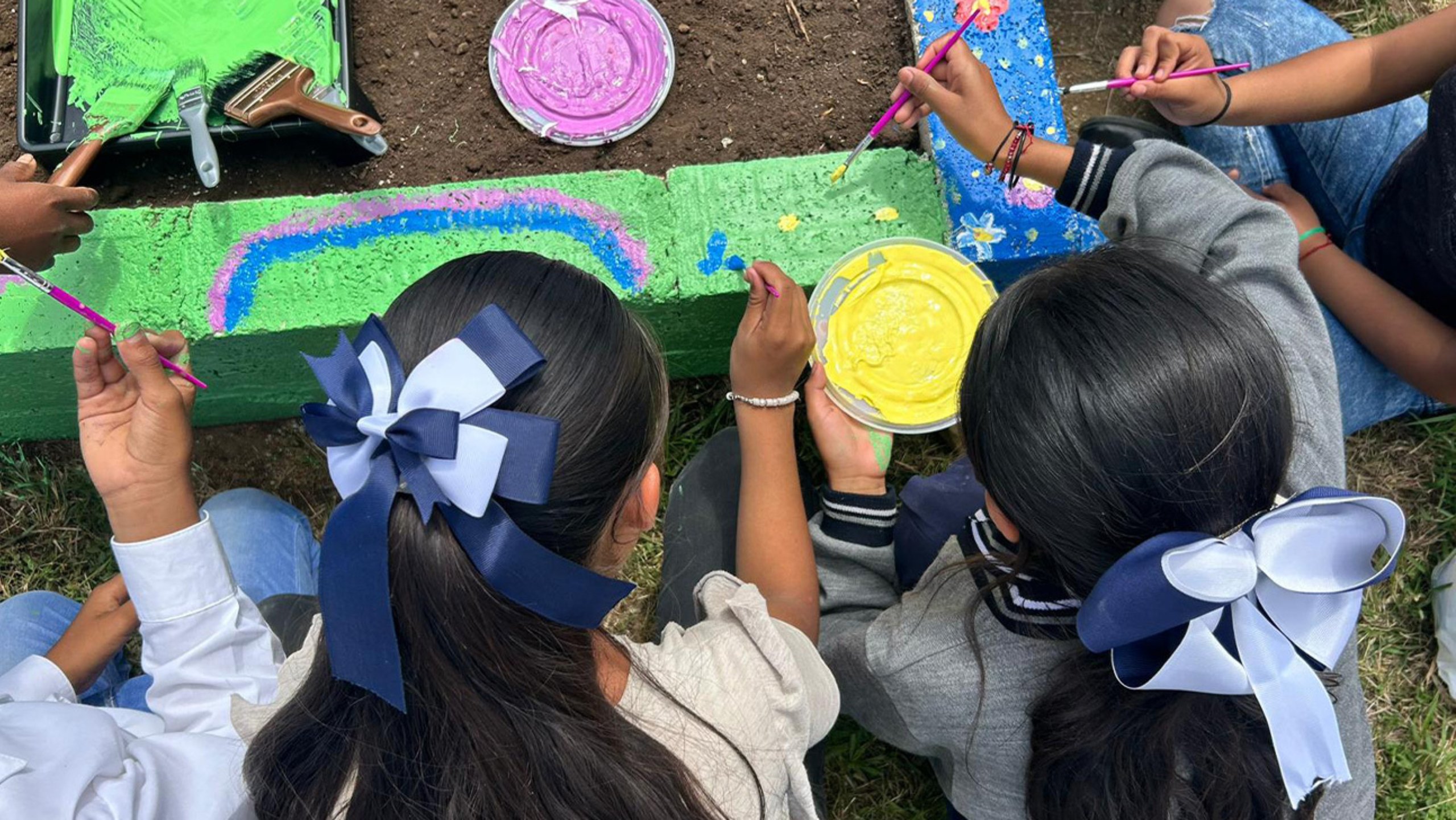
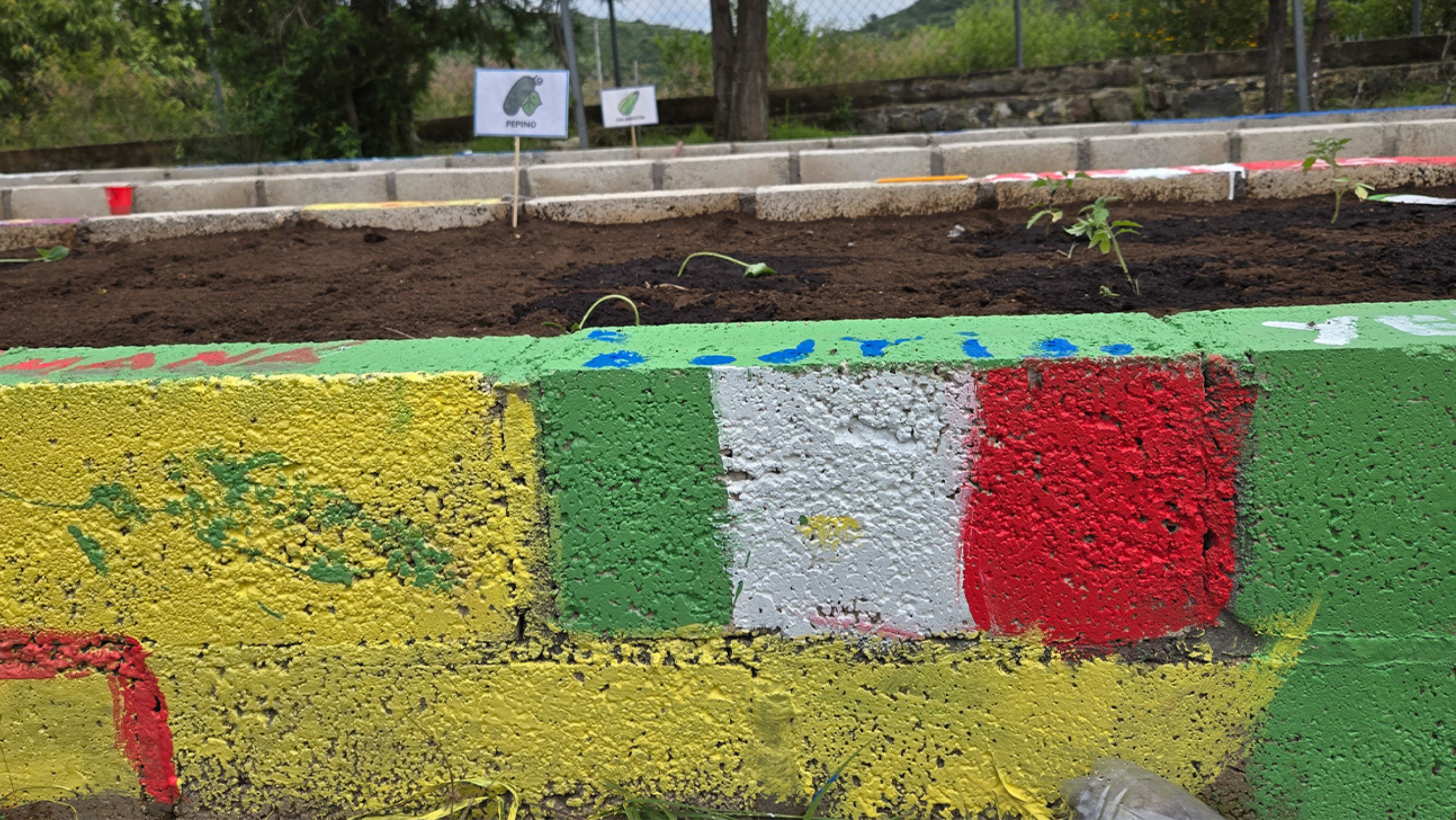
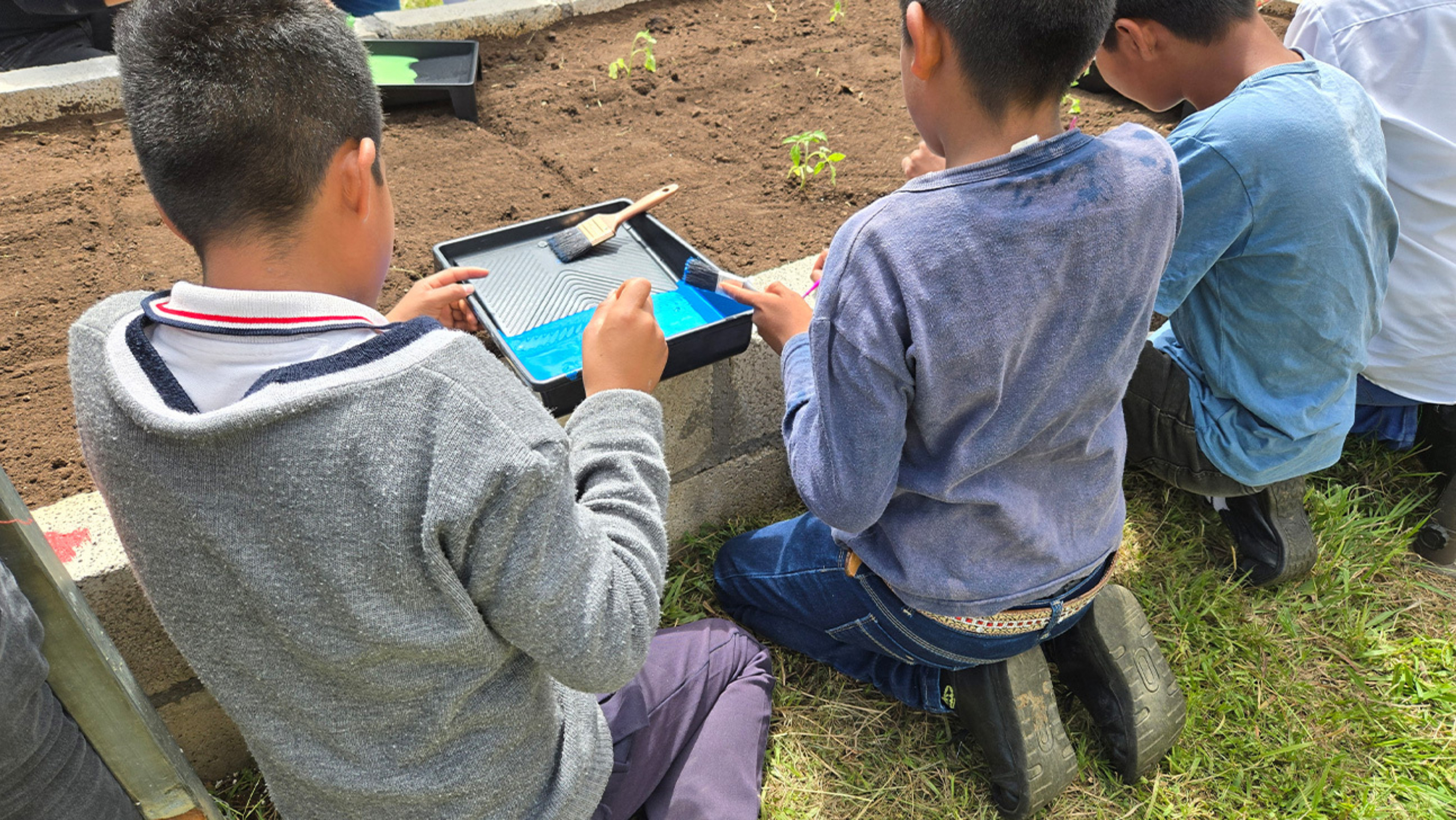
Convergence of Teams
We would like to showcase and thank our wonderful collaborators who made this project possible. During the spring of 2024, the collaborators held multiple, bilingual online meetings to plan, adapt and organize the program, and they finally met in person on Sept. 22 over a delicious dinner in Puebla, Mexico.
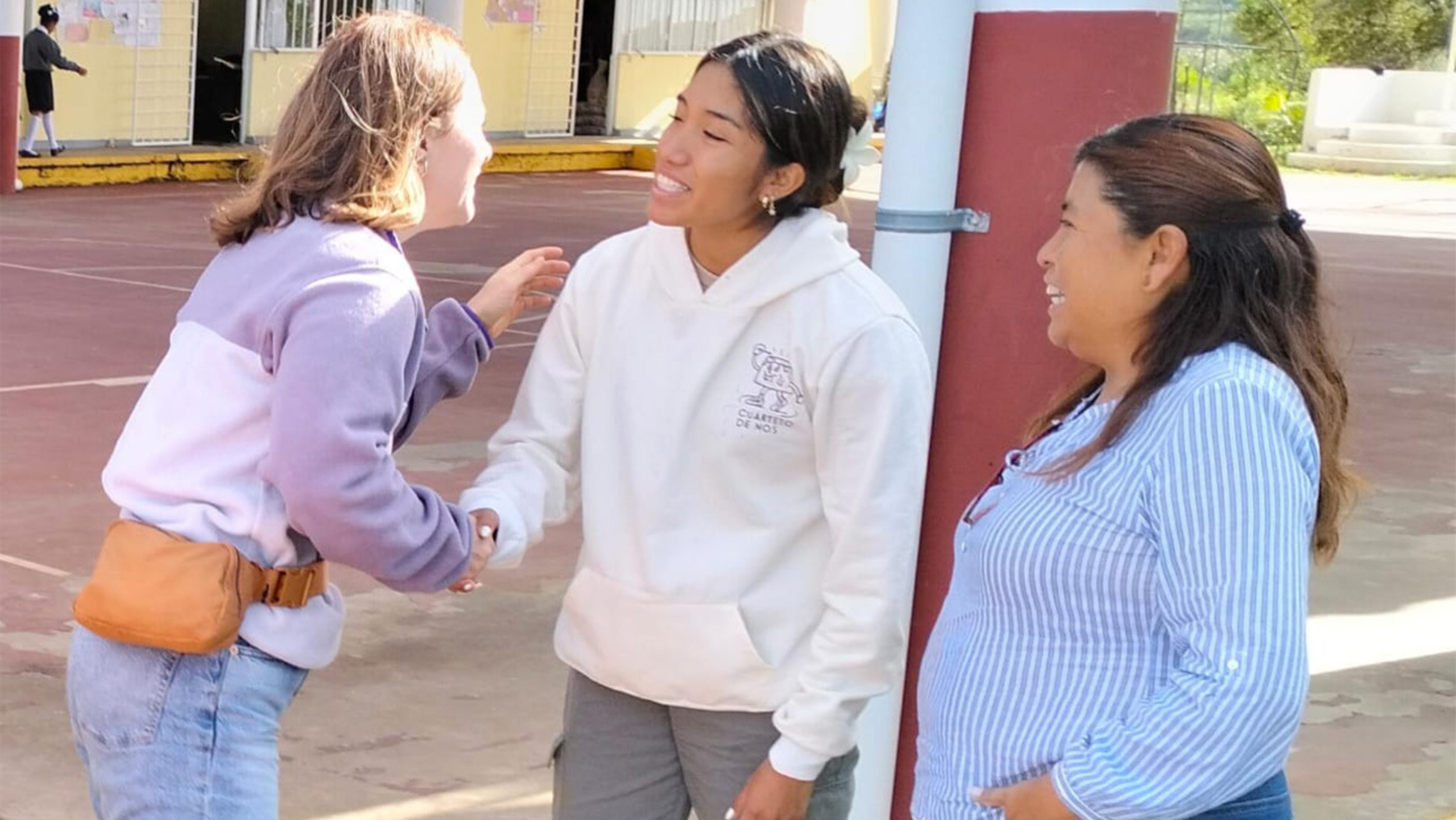
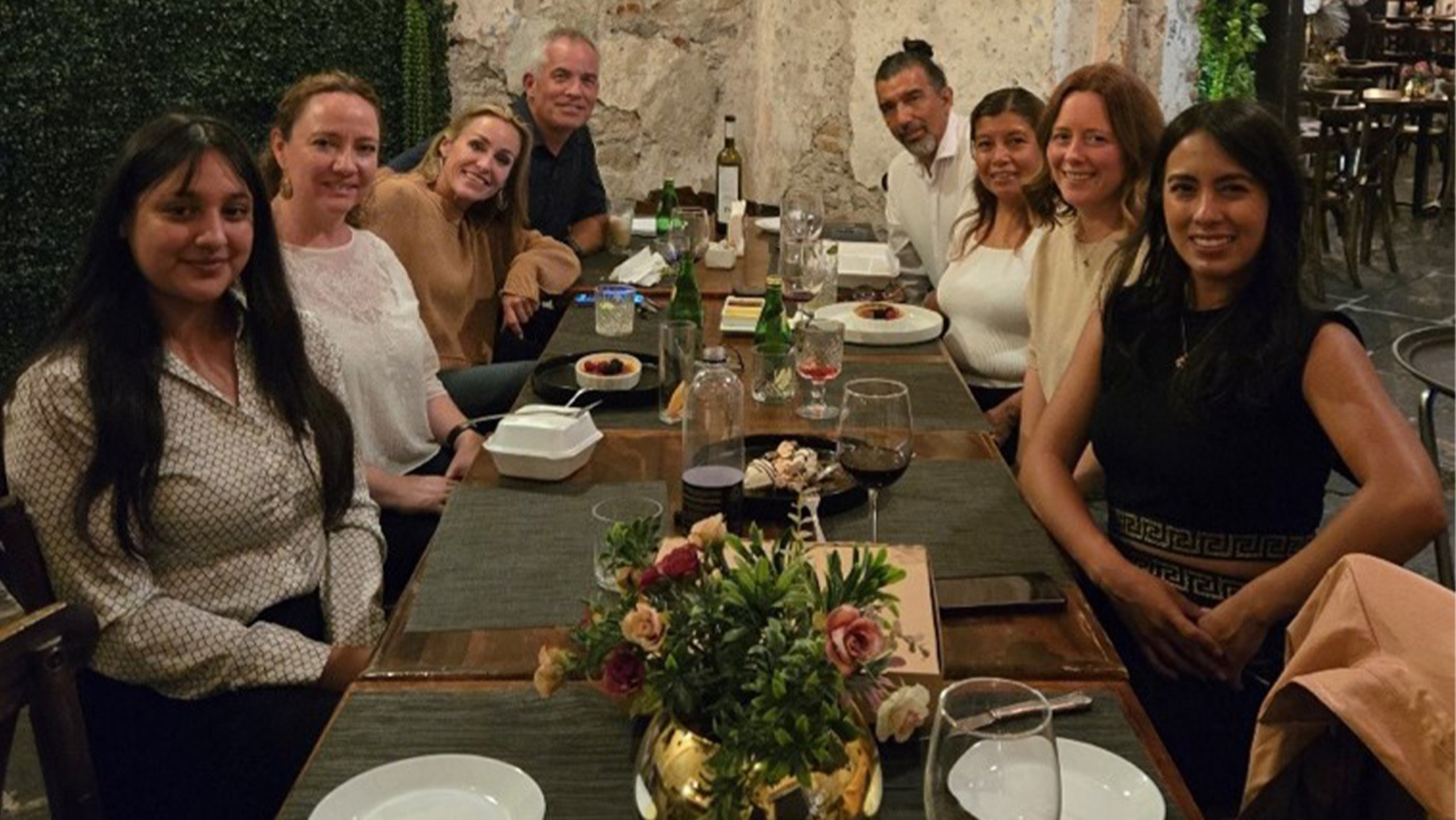
The EdEN Lab team includes principal investigator Jaimie Davis, project coordinator Katie Nikah and Ph.D. student Mariela Jiménez Rivero from the nutritional sciences department at the College of Natural Sciences at UT. Their research focuses on the implementation of school garden interventions to increase fruit and vegetable intake and decrease cardiometabolic risk among children.
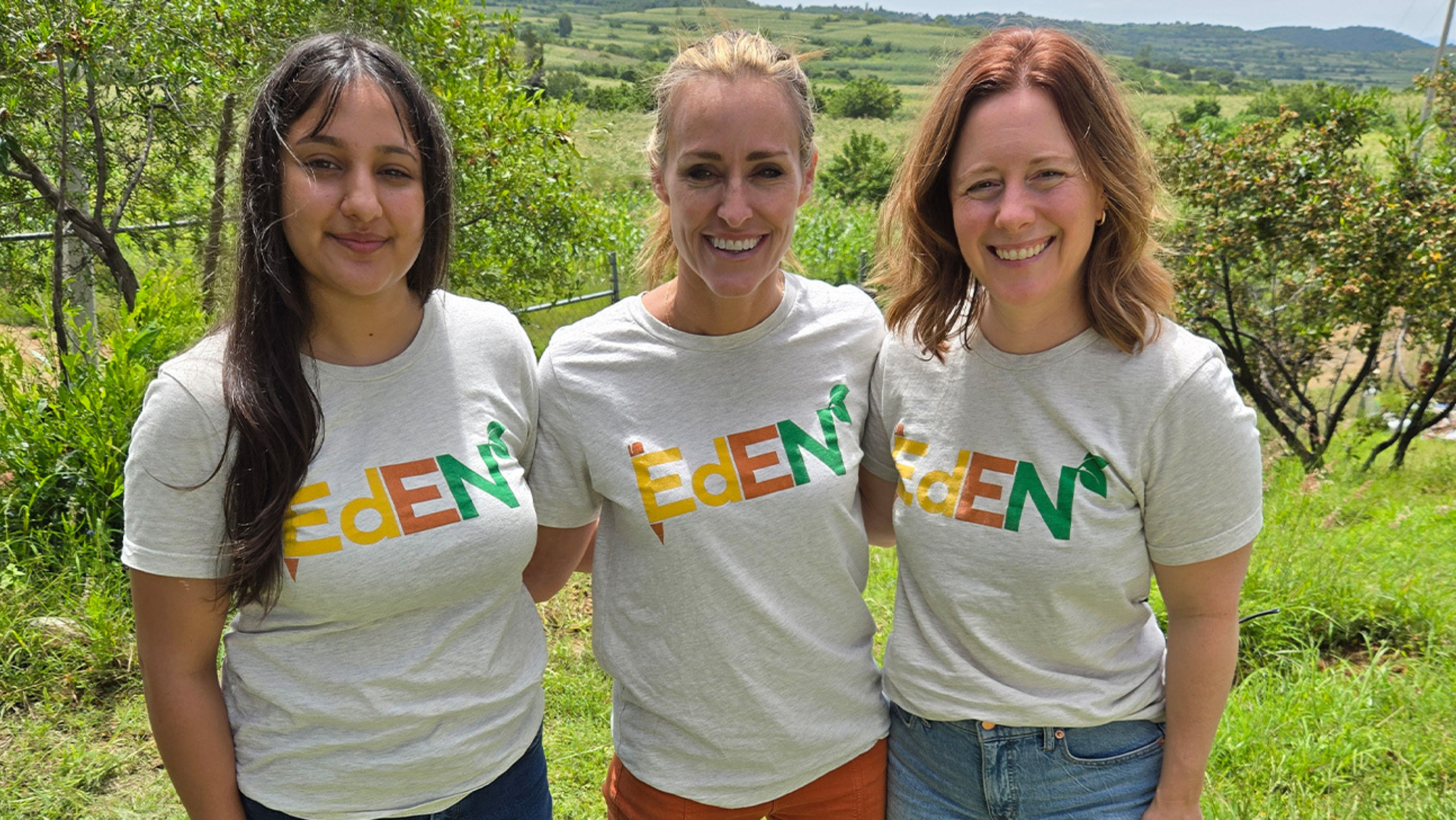
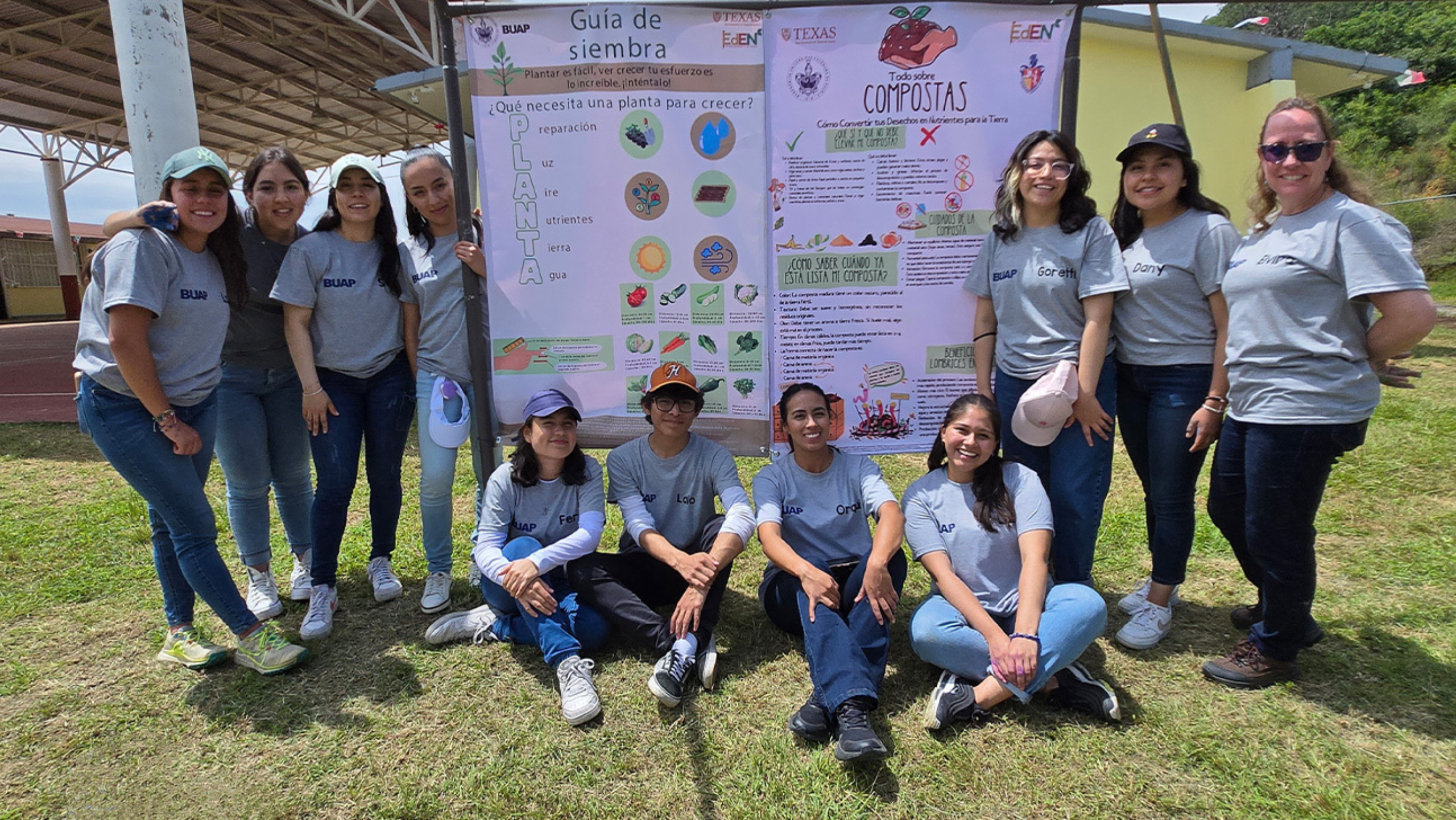
The Benemérita Universidad Autónoma de Puebla team includes professors Elvira Rojas and Orquidea Ibarra and their undergraduate clinical nutrition students from the Facultad de Medicina: Viridiana Hernández Gómez, María Fernanda Salazar González, Stefania Alatriste Garfias, Karla Goretti Lima Reyes, Eduardo Ramírez Guzmán, Laura Castro Pérez, Hannia Galicia Silva y Luz Guadalupe Rodríguez Zepeda. They were elated to volunteer in this special project, which they described as a great way to give back to the community and engage in meaningful nutrition projects that complement their studies and leverage their expertise.
Fondo Comunitario Mónica Gendreau-Fundación Comunitaria de Puebla director Martha Patricia Vargas Espinosa and agronomist Alejandro Luna Lopez have previously collaborated with the Benemérita Universidad Autónoma de Puebla, Dell Med, UT and AMPATH/MAPAS México and were instrumental in garnering support and enthusiasm from the community parents, teaches, and students, acquisition of gardening supplies, and communications with the middle school’s parent-teacher association.
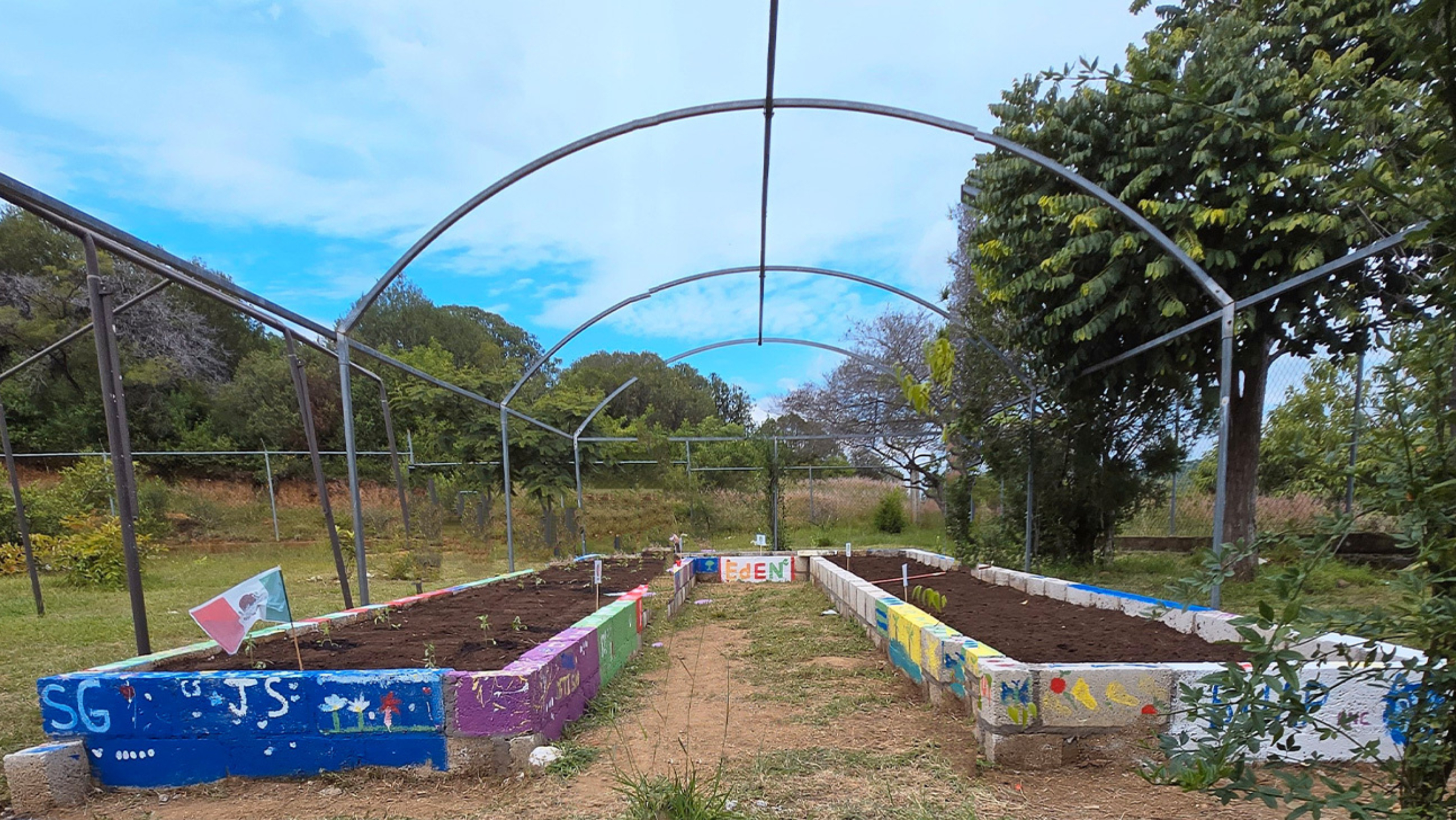
Research team members, teachers and students decorated and planted in the garden to kick off the school gardening program in Puebla.
The middle school’s teachers and parents enthusiastically helped this project come to life. The parents spearheaded the garden bed build and installed the rainwater collection units that were filled during the summer rainy season in Puebla and prepared delicious elotes from their gardens and agua de melon for the event.
Finally, a special thanks to Rebecca Cook, Ricardo Ainslie and Beth Felker at Dell Med, Malory Hernandez with AMPATH/MAPAS México, Nancy Lopez with INSP, Hugo Corona Hernández, Jason Davis, Shawn Nikah, Green Our Planet and Elham Almahmoud, who all contributed their time, expertise and coordination to this project. We look forward to our continued collaboration, and we hope that this project continues to be a success.